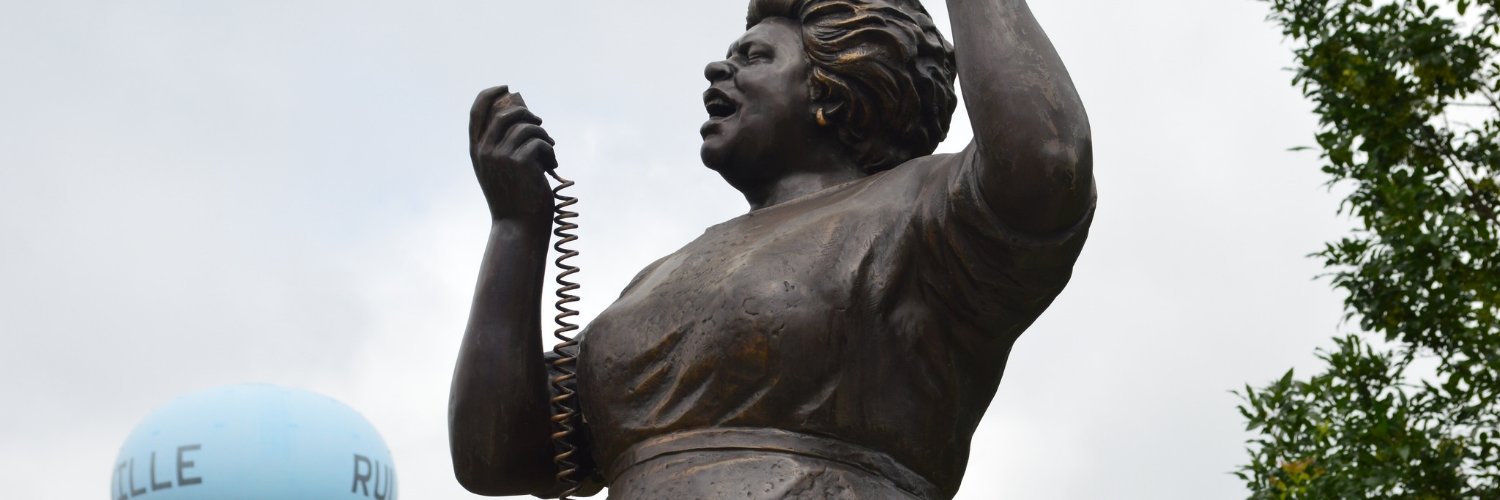
Civil Rights Road Trip

The Civil Rights Movement in the Mississippi Delta was a movement led by normal, everyday people to build better lives for their families and communities. It was a movement that crossed barriers of generation, class, place, and race. Local military veterans, young SNCC activists, and lifelong sharecroppers worked hand in hand to realize a vision of a Mississippi Delta that was free and equitable.
That one unifying vision yielded a diverse, conflicting, fruitful movement on the ground. Explore the Mississippi Delta and learn how the Movement built people up to lead themselves. Learn about Mamie Till-Mobley, whose dedication and strength made the world see the brutal lynching of her son. See the statue of Fannie Lou Hamer, who imagined a Mississippi Delta where the land belonged cooperatively to the people who worked it. Visit the home of Amzie Moore, the military veteran and activist who traveled the Delta with armed with a gun, and refused to be run out of town.
The Mississippi Delta is its people and the communities they’ve built. From Mound Bayou, the historically black town that nurtured Dr. TRM Howard and Medgar Evers and Myrlie Evers-Williams, to Greenwood, a major stage for organizing in the Mississippi Delta, travel the region and walk in the footsteps of ordinary, normal people, who demonstrated incredible bravery as they fought to change the world.
Explore the Mississippi Freedom Trail and the sites listed below to learn more about the Civil Rights Movement in the Mississippi Delta, and plan your trip today.
White Front Cafe and Joe's Tamales Place - Rosedale, Mississippi
While you’re in the Delta, you must stop at the White Front Cafe in Rosedale for tamales. Rolling some of the best tamales anywhere, the Pope family have been serving up delta tamales to people to world-over for more than 50 years. Check out this slice of Americana and grab some tamales for the road, or eat on site with an ice-cold cold co-cola. And be sure and visit with Barbara Pope, the owner, while you’re there. She’s a sweetheart.
The Town of Mound Bayou, Mississippi
Just up the road from Cleveland is the town of Mound Bayou, Mississippi. A one-time home to Civil Rights leader, Medgar Evers, Mound Bayou was founded in 1887 by former slaves led by Isaiah T. Montgomery. As an all Black community, Mound Bayou was known as an oasis during the turbulent beginnings of the Civil Rights movement, with many Black-owned businesses and no segregation laws in effect. The city eventually became the base of operations for the Regional Council for Negro Leadership that played an important role in securing Civil Rights for all Americans.
Mound Bayou Museum of African American Culture and History - Mound Bayou, Mississippi
Located in Mound Bayou, adjacent to the high school, is an exceptional museum that explores the history of one of America’s first all Black communities, it’s hardships, successes, and the interesting details along the way. One of those details is about the song popularized by Marvin Gaye, “Let’s get it on”. This song was written in Mound Bayou and first performed in the building that now houses the museum. Except it was originally written by Ed Townsend in Mound Bayou as a protest song for the civil rights movement. After they switched up a couple of lyrics in Los Angeles, it became the ballad you’re familiar with today, but it wasn’t always such, and you’ll never hear it the same way again.
Amzie Moore House - Cleveland, Mississippi
Amzie Moore was a key leader in the Mississippi Civil Rights Movement. His home in Cleveland, Mississippi, built in 1941, served as a meeting spot for local youth, community members, and leaders such as Bob Moses, Stokely Carmichael, and Dr. Martin Luther King Jr. Moore's home, which was once the place where Civil Rights leaders met to vet their representatives, has been turned into a museum dedicated to his life and Civil Rights legacy. Learn more about Civil Rights in Cleveland and Bolivar County.
Peter’s Pottery - Mound Bayou, Mississippi
A very successful Black-owned business in Mound Bayou is Peter’s Pottery. Peter Woods and his brothers started this pottery business over 20 years by pooling their money together and maxing out their credit cards. Today, this family-centered business sells their Mississippi mud pottery all over the world and attracts thousands each year to Mound Bayou, the town where they grew up.
Emmett Till Marker - Money, Mississippi
If there was a single event that brought the issue of race relations in America to the forefront, it was the murder of Emmett Till in nearby Money, Mississippi. Till, a Chicago native who was visiting his cousins in Mississippi, was accused of whistling at a white woman in a country store. The accusation saw him tortured, killed and thrown in a river. The news of this action horrified the nation. While the general store is no longer there, there is a marker.
Tallahatchie County Courthouse - Sumner, Mississippi
In a second horrifying act, the men indicted for the abduction and murder of Till were acquitted at the Tallahatchie County Courthouse in nearby Sumner. The trial drew international attention and stoked the ire of one Rosa Parks who said that when she was told to move the back of the bus, she “just thought about Emmett Till and I couldn’t go back.” The Tallahatchie County Courthouse where Emmett Till’s murder trial took place has been preserved as a museum, with the interpretive center across the street helping to tell the story. Visitors can book tours of the courthouse and the interpretive center for $5.
Fannie Lou Hamer Memorial Statue - Ruleville, Mississippi
Fannie Lou Hamer was an American voting and women's rights activist, community organizer, and a leader in the civil rights movement. She was the co-founder and vice-chair of the Freedom Democratic Party, which she represented at the 1964 Democratic National Convention. Hamer also organized Mississippi's Freedom Summer along with the Student Nonviolent Coordinating Committee (SNCC). She was also a co-founder of the National Women's Political Caucus, an organization created to recruit, train, and support women of all races who wish to seek election to government office.
Delta Interpretive Center at the B.B. King Museum - Indianola, Mississippi
Situated just down the road from Cleveland in nearby Indianola, the B.B. King Museum and Delta Interpretive Center offers a host of programming that depicts the story of B.B. King’s life in the Delta and his legendary career. A family-friendly destination ideal for music fans of all ages, this attraction teaches visitors about the events of B.B. King’s time, including discussions about civil justice and race relations, and it also explains how King contributed to Mississippi becoming known as “The Birthplace of America’s Music”.
